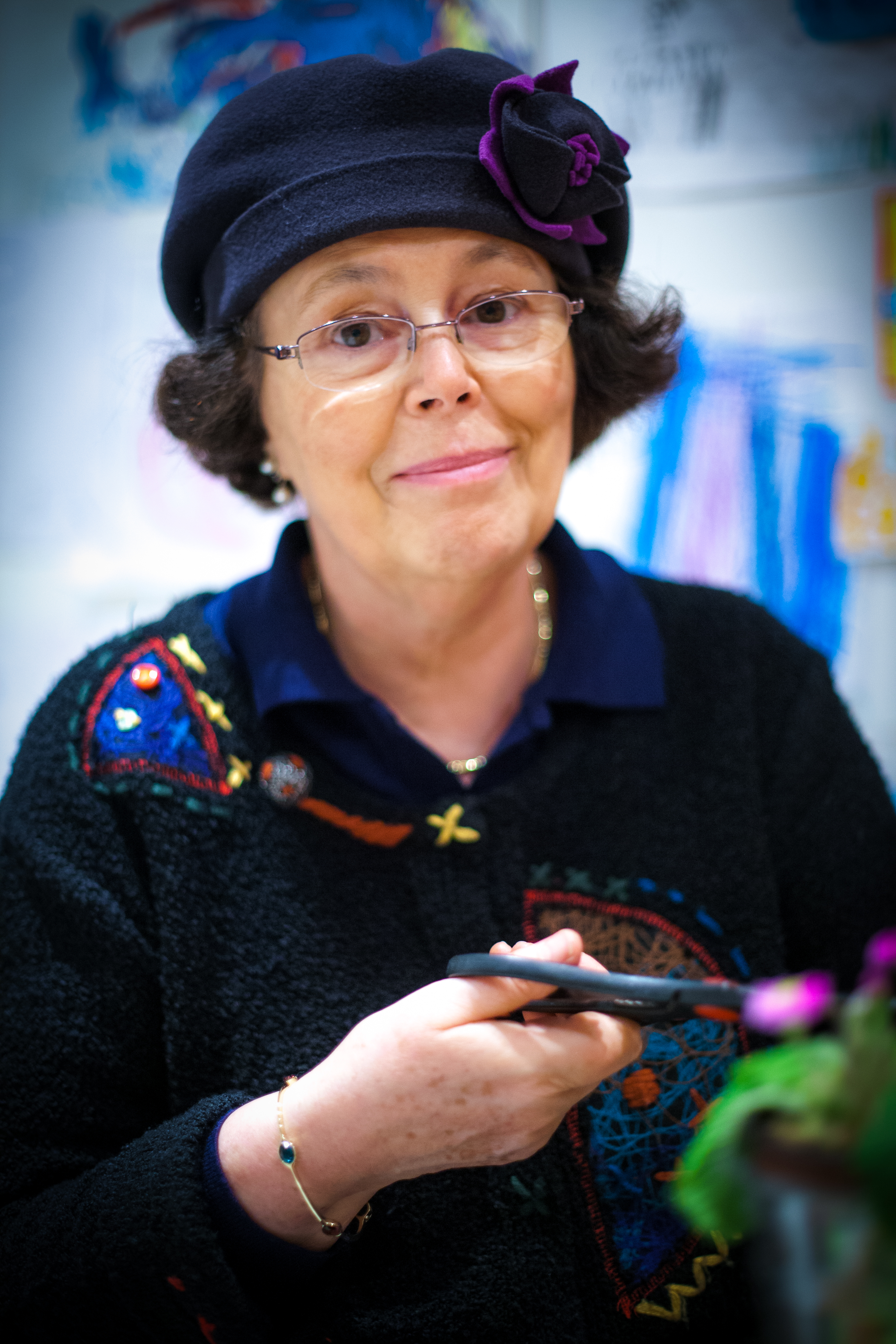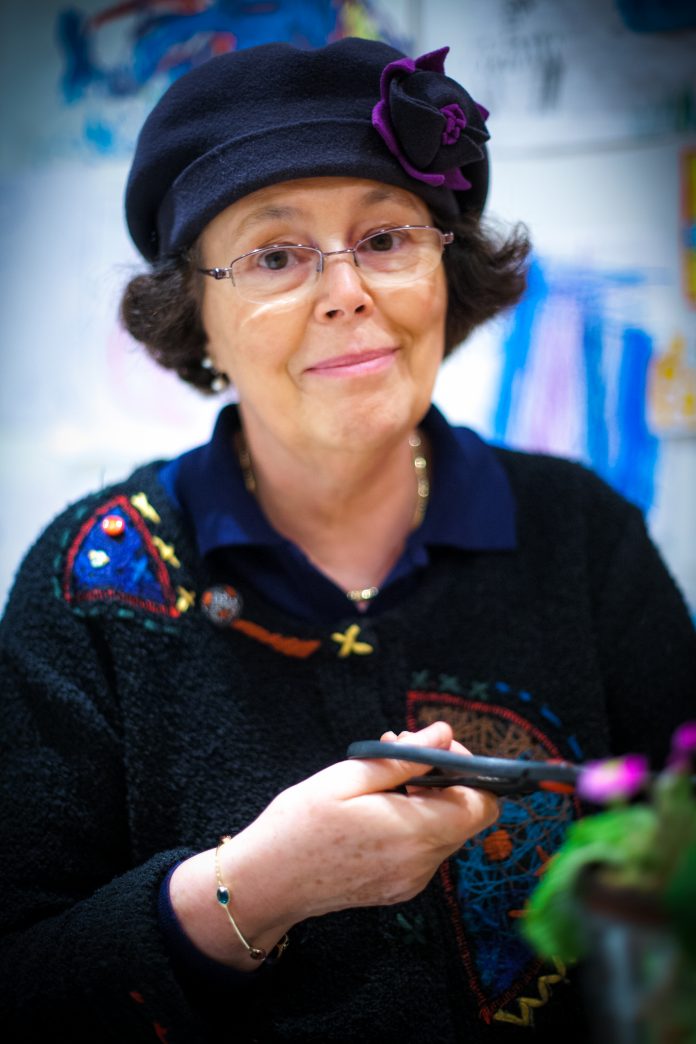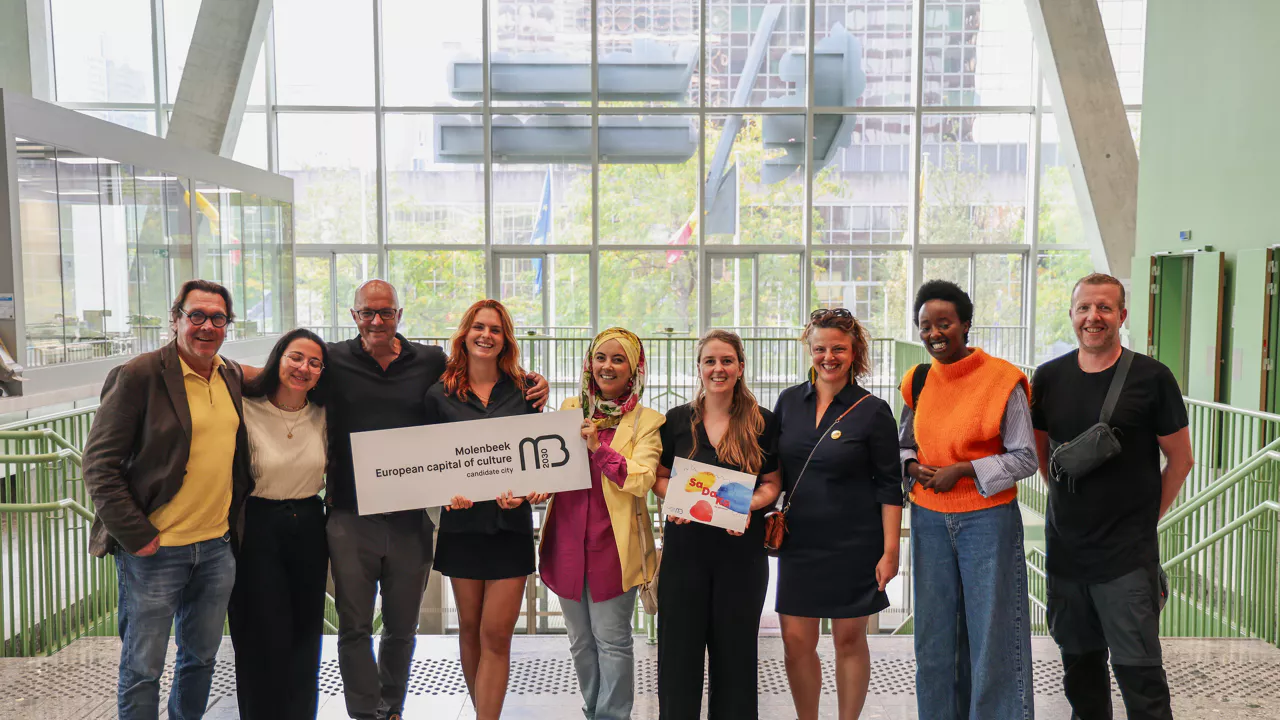Interview with Marie Holzman: European Values should not be for sale
By Adrien Morin
On 25 October 2019, I had the chance to speak with Marie Holzman, a renown French sinologist and specialist in human rights issues. This was the occasion to discuss recent developments regarding the ongoing crises in Hong Kong and Xinjiang, the way Beijing handles civilian protests domestically and international criticism regarding its own policies, as well as the repercussions of these issues on the Sino-French relationship.
As a longtime supporter of Ilham Tohti’s work in trying to create an environment in which China’s various ethnic groups (Uighurs and Han Chinese principally) could coexist peacefully and equally across the country and in Xinjiang in particular, Marie Holzman welcomed the European Parliament’s decision to award him the Sakharov Prize with hope. This is Tohti’s second European recognition this year after he received the Council of Europe’s Vaclav Havel Prize. “There is a magnifying glass effect on the situation of Uighurs in Xinjiang all of a sudden in 2019” the French expert says. “Behind Ilham Tohti, it is an entire cause that is being brought under the spotlight. It is a way to remind China that we, in Europe, are aware of and worried about what is going on in Xinjiang for the Uighurs today” she adds.
Beside Tohti, other intellectuals such as Tiyip Tashpolat are currently detained in China, alongside more than a million of regular Uighur citizen who have been forced to join so-called “vocational training center.” Marie Holzman deplore the failure of initiatives from Tohti and others, to reconcile Uighurs and Han Chinese (the dominant ethnic group in China), as she explains that the Communist Party of China (CPC) constantly cracked down on these prominent individuals who tried to preserve Uighur culture in Xinjiang. According to her, it does not matter whether these people are moderate or even if they speak out against separatism like Tohti did. She even draws a parallel with Liu Xiaobo, a former human rights activist in China who died in 2017 following nearly a decade of imprisonment. “Liu Xiaobo and Ilham Tohti were always transparent in their struggle for the promotion of fundamental liberties in China” Holzman argues, “their work was available to everyone and they came up with propositions and methods for the Chinese government to work with in order to improve the situation in terms of civil liberties.” Negotiations never kicked off on this ground however.
For the French expert, there is an explanation for this: “the Chinese regime is especially worried about charismatic figures, because in Beijing’s mind, these people could take the lead of an opposition movement that would be coherent and organized, and could thus have a solid basis to challenge the government’s narrative.” Liu Xiaobo and Ilham Tohti easily fit in this charismatic figures’ category, even if they never talked about overthrowing the CPC. Marie Holzman also mentioned the Falun Gong movement – a spiritual movement that gathered dozens of million people across China and around the world – as an interesting example of how the CPC consistently cracks down on societal movements as soon as they reach a level of organization and popularity that leave them outside of complete governmental control. Repression against the Falun Gong movement, as part of an antireligious campaign, has been ongoing in China since 1999. In short, large-scale societal movements can only happen in China within the structures designated and approved by the government.

So, what consequences can the latest Sakharov prize awarded to Ilham Tohti have on the EU-China relations? For Marie Holzman, there is no doubt that it really upsets China. Beijing had already started lobbying against his candidacy as soon as it heard that he was a nominee, going so far as to building false narratives about alleged links between the Uighur intellectual and jihadi groups. As for the Sino-French relations in particular, “Macron won’t be able to avoid some sort of reprimand from the Chinese government at the occasion of his upcoming visit to Shanghai” according to the French sinologist. Indeed, Tohti’s candidacy was supported by member of the French president’s own presidential majority within the European Parliament, which could grant Macron a personal responsibility in bringing the Uighur struggles back under the spotlight.
China never accepts any sort of foreign interference into its domestic affairs and does not hesitate to criticize and even threaten countries that get too vocal regarding the Middle Kingdom’s internal struggles, especially when they refer to human rights. France has been warned several times in the past and continue to be today despite a rather “smooth policy” towards China. “Regarding human rights abuses in Xinjiang and across the country more generally, I would describe France’s attitude as ambiguous or even cowardly” Holzman says. She adds that “France’s China policy over the past 15 or 20 years has been incredibly shy.” This is the wrong way to address Beijing according to her. For the French expert, “speaking clearly about sensitive issues, such as human rights, is much more constructive than avoiding them.”
Putting into perspective China’s adhesion to the World Trade Organization (WTO) in 2001 and the original 15-year period awarded to China to comply with international norms and standards, Marie Holzman explains that Beijing does not respect the rules of the game, more than three years after the designated deadline. This is the reason why the European Parliament refused to grant China market economy status (MES). “We know that in France” she says, “but we continue to try to do business with China just as if nothing happened.” She does admit that, at the beginning of his term, Emmanuel Macron tried to bring forward the issue of reciprocity in the context the Sino-French economic relationship, that is the fact that business conditions should be the same for French companies in China as it is for Chinese companies in France. However, she feels like he has now moved significantly off his original negotiating position. In short, France seems to be too scared of economic repercussions to engage into anything that could upset the Asian superpower.
Societal values and economic interests should perhaps not be two completely distinct things. “What if in the future, China starts using prison labor to manufacture cheap products? Would we agree with such methods in France and, more importantly, would we accept these products to flood the European market and kills the competition” Holzman asks. From that perspective, in a globalized world, France has a right to care about human rights abuses outside its national boundaries and in China in particular. Unfortunately, according to her, Paris’ reactions to the crises in Hong Kong and Xinjiang have been way too cautious so far. Angela Merkel has been much more straightforward in comparison, calling for the full respect of Hong Kongese citizen’s right to protest for instance. According to Marie Holzman, the German Chancellor has more political courage than most other European leaders, but she stands mostly alone on the Old Continent on that matter. “This is perhaps the difference between a powerful America that threaten China when it does not respect the rules of the game and implement sanctions accordingly, and our old Europe that does not threaten much and implement nothing against Beijing” she suggests.
There has been no real condemnation from Paris regarding police abuses in Hong Kong since the beginning of the crisis seven months ago. Jean-François Cesarini, a French MP from Macron’s presidential majority, led the only open criticism via a petition that gathered the signature of about 20 other MPs, what triggered a “shy reaction” from Jean-Yves Le Drian, France’s Minister of Foreign Affairs. A delegation from Hong Kong was also received at the National Assembly by Mr. Cesarini, but beside this, there is nothing else to worry about for Beijing really. Regarding Xinjiang, it is even worse according to Marie Holzman: “in the case of Hong Kong, there are at least some footages that make it into French media, but for Xinjiang, almost nothing filters through Chinese censorship, and therefore, no one in France really hear about what is going on there.”
Marie Holzman was alongside the Hong Kongese delegation as it visited Paris this month. She considers the comparison the Chinese ambassador in France made between the yellow vest crisis and the Hong Kong protests very misleading. She explains: “the Hong Kongese delegation highlighted that there is a significant difference between police brutality in France, which might exist but remains largely under the supervision of a justice and media system that are independent from the executive power. In Hong Kong, not only are police forces using live rounds against protester, you also have external actors from organized crime networks and secret societies who are involved in attacking and threatening protesters.”
Over the past decades, the French government has been wondering what attitude it should adopt towards China when it comes to human rights issues, without finding a real answer yet. “Diplomacy is one thing” says Holzman. “The job of diplomats is to maintain contact and engage into negotiations with other countries, even when there is a disagreement in terms of values or political model. However, it is important to realize today, that Xi Jinping’s Chinese Dream (Zhongguo Meng), is at odd with our values in Europe. China is not about to invade the world but it is currently trying to spread its model across the globe, even if it means going “at war” with existing democratic or humanist values.” According to the French sinologist, the European ideal is still relying on the 1789 Declaration of the Rights of Man and of the Citizen. On the other hand, she argues that Xi Jinping’s values are completely different: “China’s values today, more than ever, are the one of an elitist party [the CPC], and more specifically, of one man [Xi Jinping] who granted himself all powers in the country. In other words, it is a dictatorship that cannot possibly respect European values when it comes to human rights.”
In this context, Marie Holzman deems necessary to remain true to European values, including when dealing with China. “We cannot be scared of China because when we are, we are not only undermining our own values but we are also making everything harder for those who try to defend them” she says, mentioning Confucius institutes as one of the Chinese tools for influence which can have a negative impact locally. These institutes provide language and cultural services to those interested in China around the world but they do so in a very selective way according to the French expert, as she emphasizes that “the fact that Confucius institutes are sometime integrated into French universities today, shows that Chinese censorship regarding Tibet or Xinjiang for instance, can now affect oversea students.”
What is left of France’s voice regarding human right issues in the international arena? Not much claims Marie Holzman. The days when France welcomed Chinese dissidents following the Tiananmen incident are long gone according to her. France’s interest and commitments towards human rights decreased as the economic influence of China increased over the past decades. She estimates that “in the end, our biggest mistake as Europeans, has been our inability to adopt a united stance when dealing with China and let Beijing use economic incentives to control our respective national narratives regarding human right issues.” More importantly, Marie Holzman explains that Europe failed to make the difference between economic relations and values: “we can trade cheese and wine in exchange for clothes, but our European values should not be for sale.”








